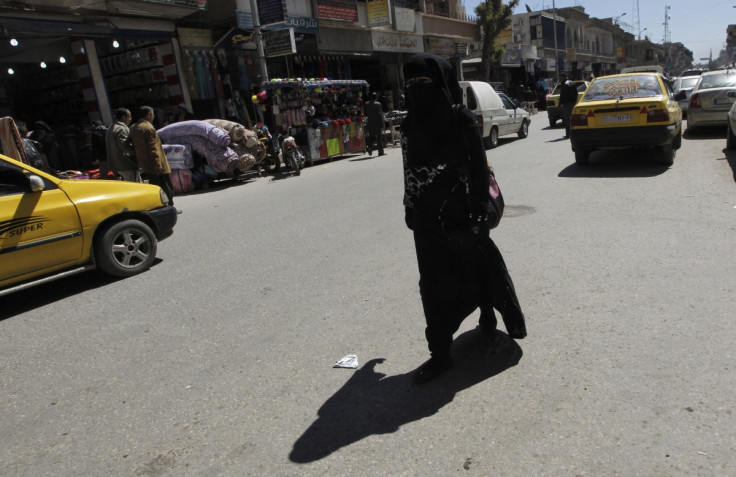Isis in Syria: Is the siege of Raqqa about to begin?

Ever since Islamic State (Isis) seized control of Raqqa in January 2014 from rival Islamist militias, including the al-Nusra Front, the eastern Syrian city on the banks of the Euphrates has been its primary Syrian stronghold and unofficial capital. It was in Raqqa – and later, the Iraqi city of Mosul – that the true face of IS was to be glimpsed through either propaganda videos, rare media reports or online leaks by activists still living in the battered city.
Now Raqqa is at the forefront of the coalition war against IS in Syria, led by the US but since joined by France and Russia, the latter of which is supporting the regime of Bashar al-Assad and bombing both IS and other Islamist factions in Syria. In the wake of the Paris attacks, in which 129 people were killed by IS-affiliated gunmen, France has launched a series of major air strikes on the city that it claims target IS infrastructure rather than civilians.
There is a growing momentum, not only behind the international bombing campaign, but among the Syrian opposition groups too after months, years even, of rivalry, competition and bloody stalemate. The Kurdish offensive on Sinjar has cut a major supply route between IS-held Mosul and Raqqa and US-backed Syrian Democratic Forces rebels in northern Syria have had success in taking control of IS-held towns.
As with cities in Iraq that were taken from IS by the Shia militias and Iraqi army earlier this year, Raqqa is likely to be heavily fortified with IEDs and other defences. When IS has defended cities in the past, they have left a network of deadly booby traps, snipers and tunnels. There has often been an intention on the part of those fighters that remain to go down fighting, leading to suicide missions against which it is difficult to defend.
Unlike previous victories, however, Raqqa is a populated city. It was Syria's sixth largest – with a population as high as 350,000 at the last census in 2004. Despite a ban by IS on civilians leaving the city, as many as half of those inhabitants are thought to have fled, including many Christians and Shia Muslims. The real number could be higher, but tens if not hundreds of thousands of civilians remain in Raqqa.
That is problematic for the international bombing campaign, with the public in the US, France and other European nations, likely to have only limited tolerance for widespread civilian casualties. IS, aware of this, is likely to try to maximise the civilian death toll by embedding fighters within civilian populations. This will also present a challenge if and when ground forces of Syrian opposition fighters enter the city.
Associated Press reported on Thursday 19 November that this was already under way, with fighters moving into empty homes in residential areas and only using narrow side streets to avoid the fate of Mohammed Emwazi, known as Jihadi John, who was targeted as he drove on one of the city's major thoroughfares. A number of other IS figures have been killed by drones and air strikes in similar circumstances.
Activist group Raqqa Is Being Slaughtered Silently, the only source of information on the ground about life in Raqqa under IS, claims that the group is preparing for an invasion by calling up all men and boys over the age of 14. While the group claims that this is to ensure that men and boys in Raqqa pray at their local mosques, it is thought that the move is really an effort to establish a conscript army in the city.
Raqqa is a major prize for IS and it is unlikely to let it go easily. It has been home to the bulk of its foreign recruits, including Emwazi and the three British schoolgirls who fled the UK for Syria earlier this year. Activists in the city have claimed that foreign fighters occupy the best houses in the city and enjoy free utilities and healthcare. Meanwhile, it is believed that the Paris attackers were trained in Raqqa.
It has also been at the centre of some of Islamic State's most brutal atrocities, with regular executions in the city's central square and attacks on Christians and minorities. Like Mosul, Raqqa has offered a glimpse into the brutality of life under IS rule, illustrated through hundreds of propaganda videos published on internet forums and social media.
As such, Raqqa has a level of IS infrastructure that is not seen in any other stronghold, with the exception of Mosul. If the international coalition and the rebels that it backs on the ground in Syria were able to prise the city from the jihadists' grasp, it would, in the words of British Prime Minister David Cameron, be cutting the head off the snake. But liberating Raqqa from IS will be the anti-IS coalition's biggest challenge yet.
© Copyright IBTimes 2024. All rights reserved.






